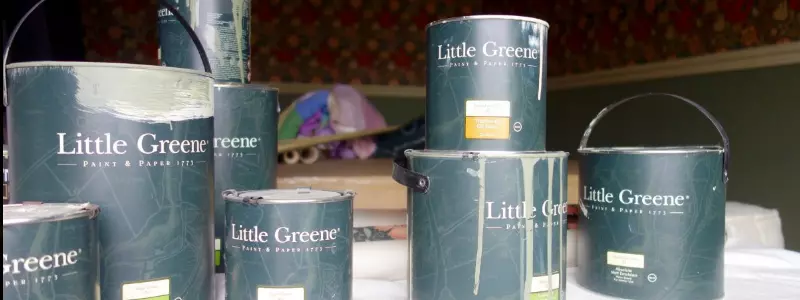Emulsion paint is water-based paint and can have vinyl or acrylic properties added to increase durability. Depending on the mixture the results can vary, the more vinyl compounds the more shine and harder wearing the paint becomes.
Emulsion paint is usually found to be used on interior walls and ceilings. This is due to its fast drying times and much lower production of toxic fumes. As it also comes in a variety of finishes such as gloss, satin, silk, and matt it's also the most commonly used paint.
Disposing of Water Based Emulsion Paint
Water-based paint can be disposed of in a normal trash bin as long as it's been completely dried out first. Due to its high chemical contents, wet paint in most countries is not allowed to be placed within the bin. Please also be aware that paint cannot be placed within the recycling bin and neither can any potentially recyclable products that may have paint on them such as cardboard.
Dry the paint out
Before throwing the paint away, you will want to ensure the paint is dried out. This will make it easier to dispose of and will stop and risk the paint leeching into our soil and food chain.
You can dry the paint out by either mixing it in with sawdust/cat litter and leaving it with the tin lid open for a week or so. This will harden the paint allowing it to be peeled out and placed within the rubbish bin.
Recycle
Try and keep the paint if possible for a later date when you may need to use it again. This removes the potential of it going into landfill and taking thousands of years to decompose.
You can also look for friends, family, or even the local schools that may be able to use the paint. In any case, it's always best to try and find a place that can use the paint rather than sending it straight to a landfill.

Can you pour emulsion down the sink?
Like with most paints, although emulsion paint is water-based, you cannot pour it down the sink. Paint has chemical compounds that will not only potentially start to build up in your sewage system and cause blockages but will also make their way out into the sea and can be extremely toxic for marine life.










